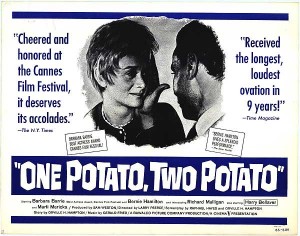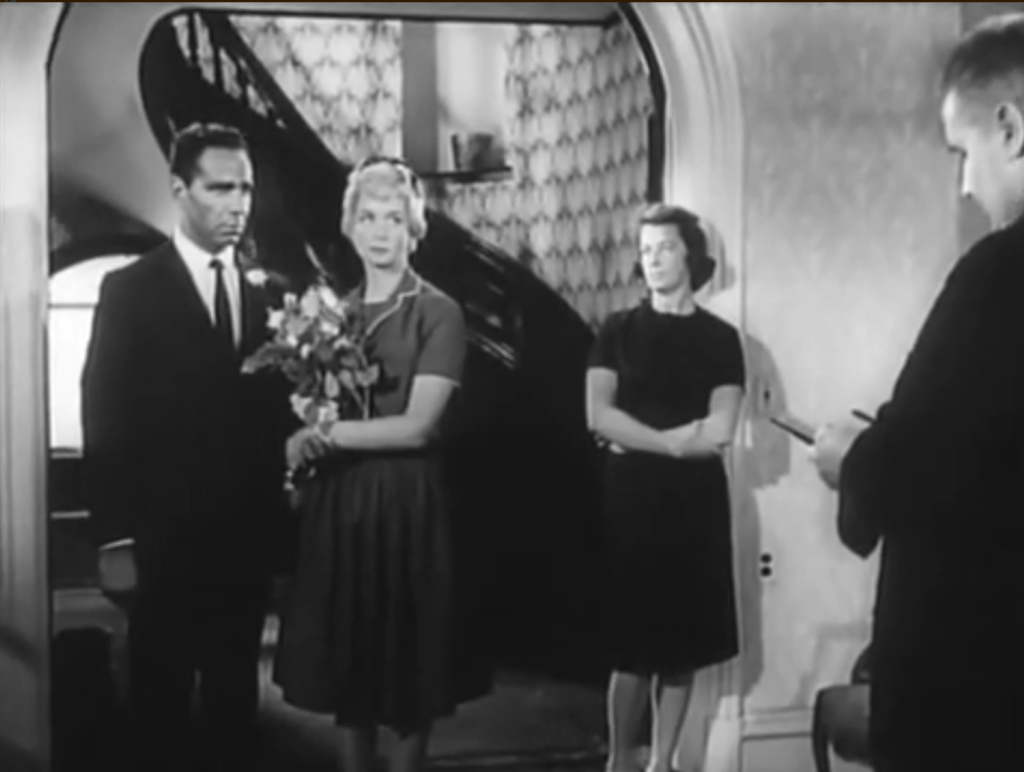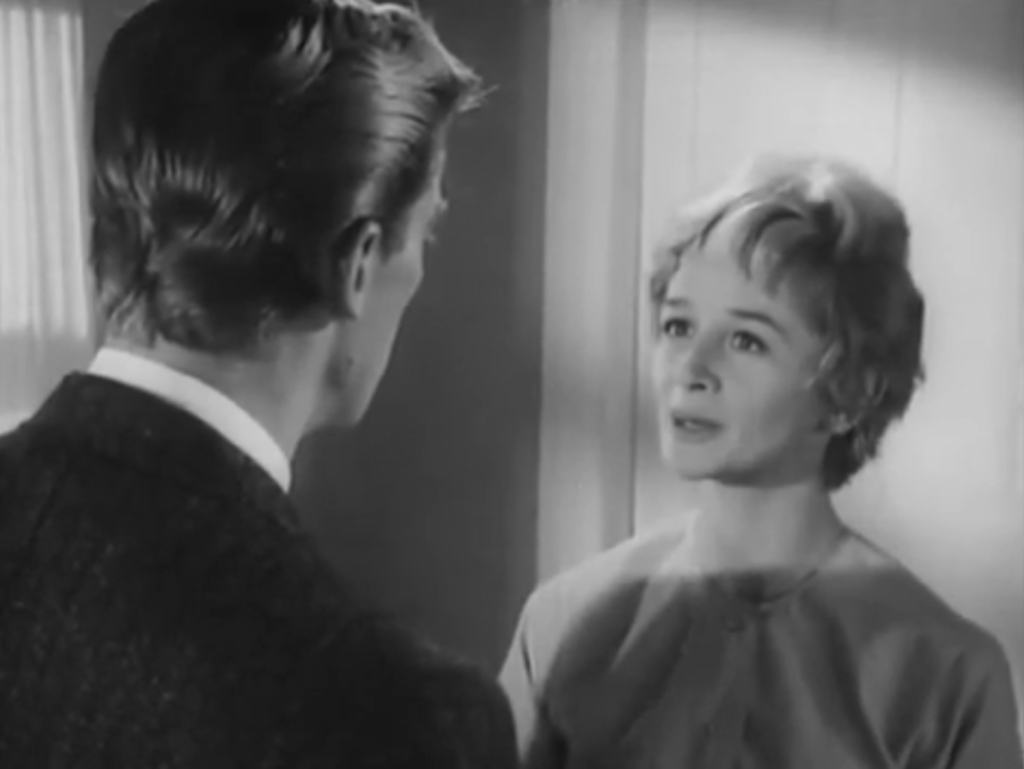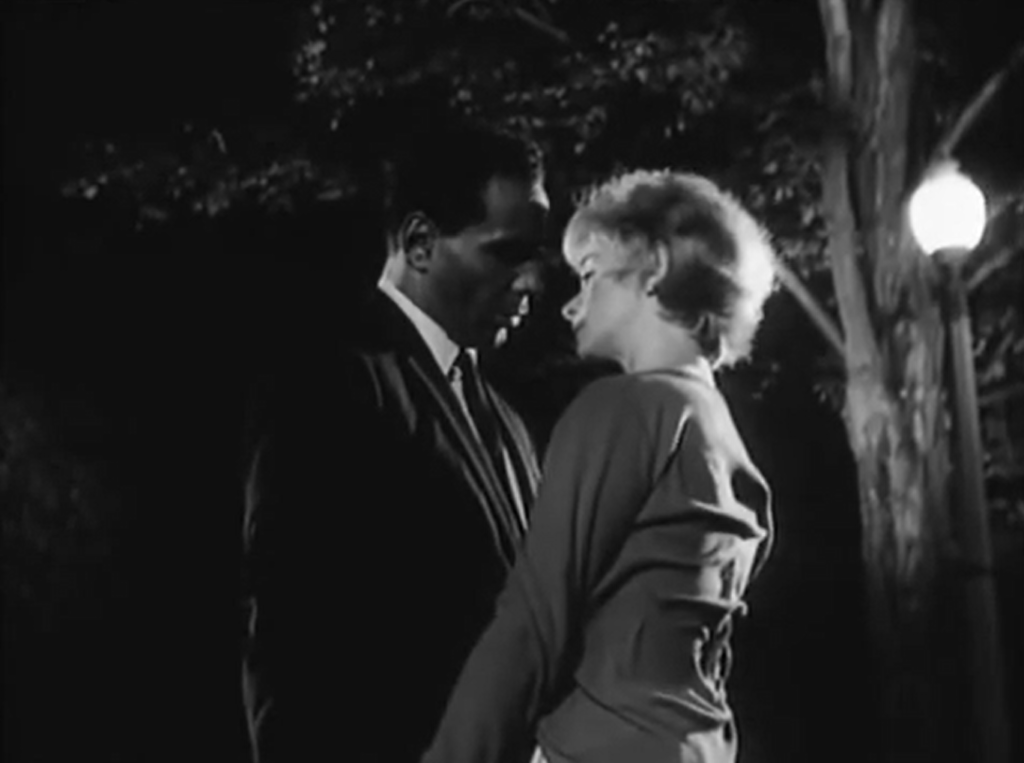“My husband gave her what you took away: a father, a family, the only home she’s only really ever known.”
|

Synopsis:
When a white single mother (Barbara Barrie) marries an African-American co-worker (Bernie Hamilton), her bigoted ex-husband (Richard Mulligan) sues for custody of their daughter (Marti Mericka).
|
|
Genres, Themes, Actors, and Directors:
- Courtroom Drama
- Cross-Cultural Romance
- Race Relations and Racism
Review:
It’s easy to see why this brave film about interracial romance was cheered when it debuted at the Cannes Film Festival. One Potato, Two Potato dares to show a man and a woman whose love for each other is blind to race, yet it never shies away from depicting the bigoted and/or defensive reactions of those around them. Barrie and Hamilton’s romance is an issue not only for prejudiced whites (note the quietly devastating shot during their wedding, when a female attendant stares at them with ice water in her veins):

… but for Hamilton’s parents (nicely played by Vinnette Carroll and Robert Earl Jones) as well: Jones in particular resents what he sees as the intrusion of whiteness into his hard-earned independence. While not every scene in One Potato, Two Potato works (some — such as when Mulligan meets his estranged daughter for the first time in years, or when Barrie and Hamilton hopscotch together in the park — smack of preciousness), they’re easy to forgive, given the film’s overall sincerity. This would make a natural double-bill with Guess Who’s Coming to Dinner (1967).
Redeeming Qualities and Moments:
- Barbara Barrie’s sympathetic performance as Julie

- A brave portrayal of interracial love in the 1960s

- The final devastating scene
Must See?
No, but it’s recommended simply for its historical importance.
Links:
|




One thought on “One Potato, Two Potato (1964)”
First viewing. Almost total agreement; which is why I would call it a must. (Although this is another extremely difficult film to find. Part of the problem may be that it was distributed by ‘British Lion’; never heard of it – but ‘OP,TP’ doesn’t pop up on tv; rights issues?) The film does have historical importance and remains relevant.
Agreed, as well, re: the noted “preciousness” of two scenes – that is, until we remember the implications of the film’s title. (The winner of that children’s counting game involving fists, the one who becomes the new leader, is the one whose fist is left.) Also significant: the biracial couple’s game is innocent; the father/daughter game is more ‘violent’ (faux gunslingers). [Note also how the daughter laughs when Mulligan tells her he’s her father – she’s apparently very comfortable w/ her black stepfather.]
Barrie won Best Actress at Cannes, and is a bit…actress-y (i.e., when she reveals that she met with her former husband). Not a bad performance, but better ones are served up by Hamilton, Carroll and Jones. Mulligan is allowed one curious introspective moment: “A man doesn’t really know anything about himself ’til something like this happens. And what he finds out may stink like a sewer.”
As noted, the ending is esp. potent.
An intriguing debut for director Peerce – who would go on to other ‘sensitive-issue’ films: ‘The Incident’, ‘Goodbye, Columbus’, ‘The Other Side of the Mountain’, ‘The Bell Jar’. (And, as I recall, one very…um, ‘unusual’ Liz Taylor flick, ‘Ash Wednesday’.)